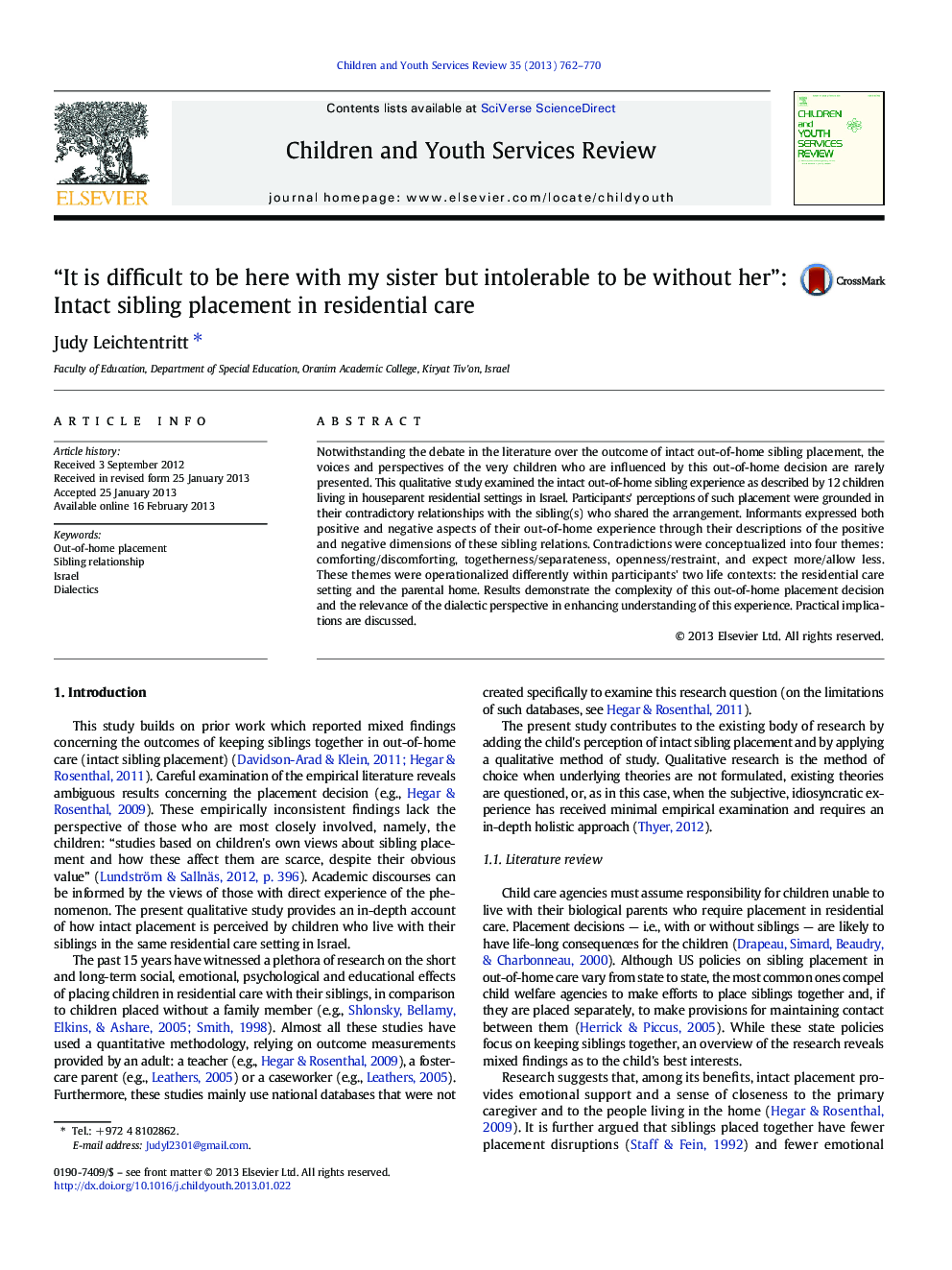| Article ID | Journal | Published Year | Pages | File Type |
|---|---|---|---|---|
| 346166 | Children and Youth Services Review | 2013 | 9 Pages |
Notwithstanding the debate in the literature over the outcome of intact out-of-home sibling placement, the voices and perspectives of the very children who are influenced by this out-of-home decision are rarely presented. This qualitative study examined the intact out-of-home sibling experience as described by 12 children living in houseparent residential settings in Israel. Participants' perceptions of such placement were grounded in their contradictory relationships with the sibling(s) who shared the arrangement. Informants expressed both positive and negative aspects of their out-of-home experience through their descriptions of the positive and negative dimensions of these sibling relations. Contradictions were conceptualized into four themes: comforting/discomforting, togetherness/separateness, openness/restraint, and expect more/allow less. These themes were operationalized differently within participants' two life contexts: the residential care setting and the parental home. Results demonstrate the complexity of this out-of-home placement decision and the relevance of the dialectic perspective in enhancing understanding of this experience. Practical implications are discussed.
► I examine the intact out-of-home sibling experience as described by 12 children. ► The experience is grounded in two contexts: residential care and participants' home. ► Themes were operationalized differently in the two contexts. ► Polarity was revealed as the underline component of the experience. ► Results call for embracing the dialectic view in conceptualizing the experience.
